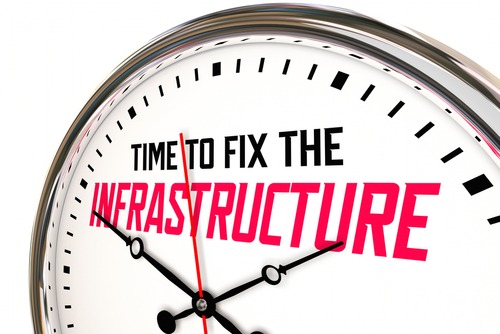
A new analysis of the Infrastructure Investment and Jobs Act (IIJA) has found that for every $1 increase in federal highway, bridge, and public transit investments, the U.S. will see as much as $3.60 in economic activity.
The report, published by IHS Markit, a global information leader, and commissioned by the American Road & Transportation Builders Association (ARTBA), found that the IIJA would increase U.S. GDP, add jobs and increase personal disposable income, if passed.
The study found that the combined $153.7 billion invested in new highway, bridge and public transit would add nearly $500 billion to the U.S. GDP by 2027. That investment would in turn spur economic growth and support more than 250,000 new jobs by 2025. Over half of those jobs, the report said, would be outside of the construction industry. More than 15 percent of the new jobs would be created in the manufacturing, health care, social assistance, real estate, and rental/leasing sectors.
That increased economic activity translates to more federal, state and local tax revenues, the analysis said. Amounting to more than $160 billion in taxes, the revenues could be reinvested into states and local communities, the report said.
And the new jobs and higher wages will benefit American households. The report estimated that personal disposable income would increase by $69 billion by 2027, or more than $500 per household.
The report also outlines how much each state would benefit from the legislation, from $2.11 billion in economic impact in Wyoming, to $40.19 billion in California.
The $1 trillion IIJA was approved in the Senate by a vote of 69-30 in August. Democratic leaders have pledged to bring the bill to the House floor by Sept. 27.